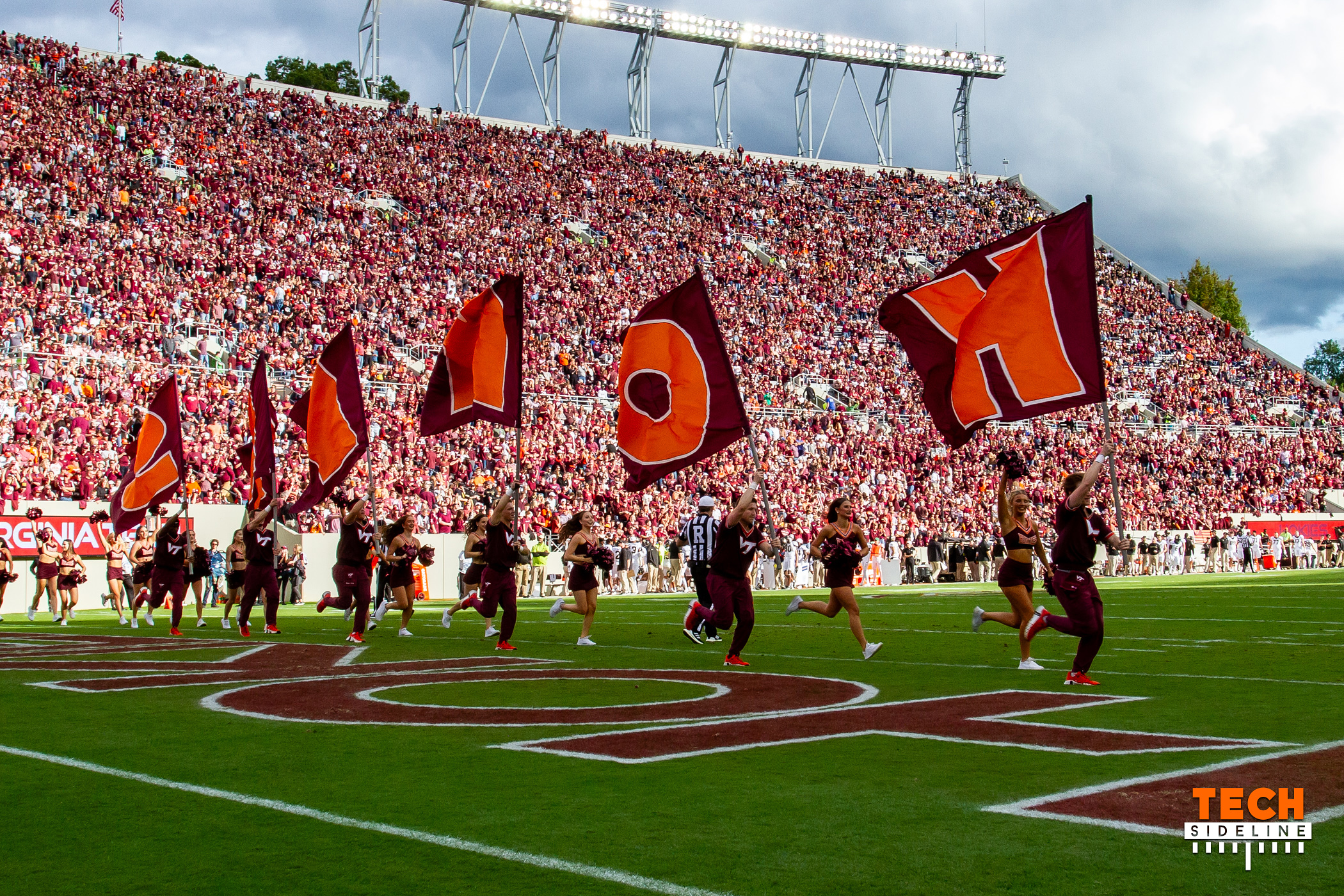
On Wednesday, two members of the Virginia Tech football recruiting staff — senior director of player personnel Mike Villagrana and director of on-campus recruiting Jalyn Ballein — joined Zach Mackey and Mike Burnop on Tech Talk Live. Ahead of Thursday night’s football game vs. Syracuse (7:30 p.m. ET, ESPN), Hokies head coach Brent Pry gave some of his staff members the floor.
Mike Villagrana
How are things going on the recruiting front right now?
It’s going well. It’s always active this year. Things are starting to pick up now, we had all of the coaches on the road last week and then this week, we’ll have about eight coaches on the road. This Friday, Coach Pry will have them in the Northern Virginia region, but just trying to do our best scouring the state and our footprint. Coach Pry and the staff, we take a lot of pride in and make sure we do a good job at that and so far this year, I think we’re doing a good job.
You played in West Virginia as a defensive lineman and a tight end. How does that combination work in college?
I played tight end and defensive end and I was about 215 pounds, and then they recruited me and then I signed and they said, ‘You know what, we’re going to move you to defensive tackle.’ At that time, we were playing at 3-3-5 defense, so I was the nose tackle, so I had to gain a lot of weight. And I was used to scoring touchdowns in high school and then I’m coming in I’m getting crushed, I was miserable.
How much did you gain?
I gained about 70 pounds, I was about 290. I went from about 215 to 290 in like one year. It wasn’t a good weight either. But after a year or two, they moved me over to tight end and I brought that physicality at that position. And I was basically a blocking tight end at West Virginia, but it was a good couple of years that we had there.
You had 1 touchdown in your career at West Virginia, tell that story.
I went in when I wasn’t supposed to be in. We’re at the one-yard line against Virginia Tech. I think we were sixth or something like that, it was a top-10 matchup. That was when Marcus Vick was a quarterback, Jeff King was a tight end. Awesome defense. I go in and again, I’m playing 20 snaps a game. I’m just a very mediocre player. And then I wasn’t supposed to go in and so I got a flag. So I go out I’m getting yelled at, my family’s embarrassed, it was a bad deal.
Luckily though, Rich Rodriguez called a boot play the next play I was in and I got lucky. Pat White could have ran the ball easily but he gave me some love and I got a ball one-yard catch. It was my only catch ever. They never thought I was going out. So it was an element of surprise, I guess. But it was cool. I saw Bud Foster last week and he was with his good friends and we’re telling the story. And he’s like, ‘Yeah, you had to tell him because that was my defense.’ Yeah, I scored a touchdown on your defense.
So you stayed there, you were a GA for a couple of years at West Virginia, but then got into the college coaching part of it. Talk about that scenario, and how did you end up in recruiting?
I didn’t know what I was going to do coming out. I really respected my coaches, what they did for me, and I cherish those relationships and I thought maybe I could get back and do something like that because I didn’t know what I was going to do. I was an academic GA. I worked with the offense for a year and then after a year, I got a chance to go to Hampton University as a part-time tight ends coach and that kind of opened the doors for me as far as college coaching. And that’s when I fell in love with coaching.
And then year-after-year at Hampton University as a young coach, I became a special teams coordinator, a recruiting coordinator. And then last year I was actually an offensive coordinator for five games. It was one of the most fun times of my life. And then they finally let the staff go. So after five years, I didn’t know what I was gonna do. I went to Savannah State for a year. And then after a year there, I decided I don’t know what I’m gonna do, or maybe I’m gonna pivot professionally. So I took a year off, moved back to Newport News with my wife and my son and then I got an opportunity to go to Penn State for a recruiting position.
At the time, recruiting 10 years ago was just a couple guys, usually a full-time position coach or one or two guys in the back room scrolling through VHS tapes. But then that opened my eyes and I saw that this profession is going to continue to scale. There’s going to be more and more people added to these departments and the value there’s going to become more and more every year. And it has, honestly. I thought I was gonna just get back into coaching, a year or two after that, but I kind of fell in love with it. I love managing people and what I do now is I manage my staff and my team.
I just treat it like I’m an offensive or defensive coordinator or special teams coordinator and I coach them up and we talk about everything. We talk about visits, what we can do better, what went well from a personal standpoint, where we can do good, we can do better, just like if I had the special teams, that’s how I kind of treat it. So I haven’t looked back. I love what I do, I love who I’m working for. I love Virginia Tech, and it’s just a blessing to be here.
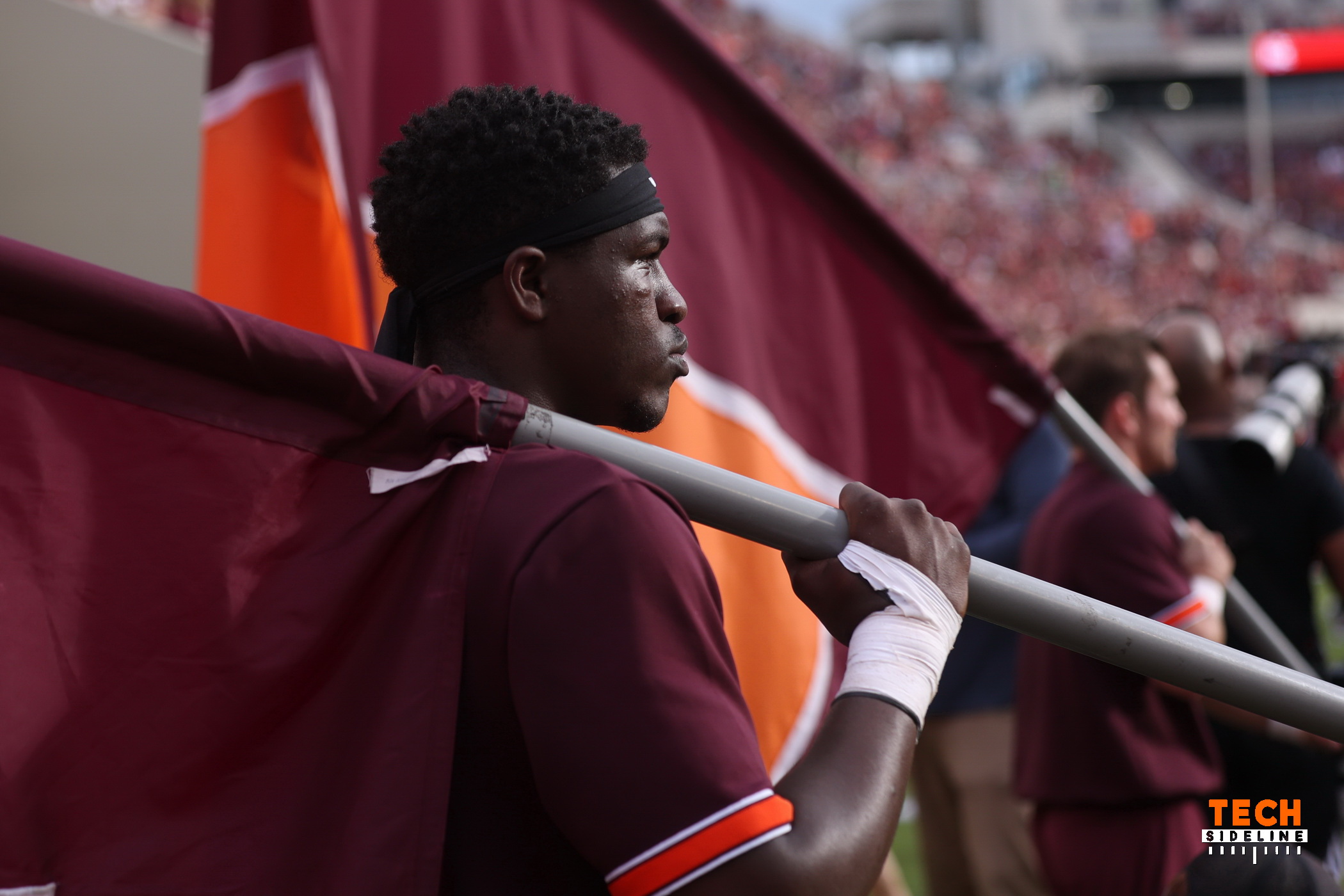
Talk about some of that staff that you have. You guys have a big operation.
Yeah. I think coming into it, I think you guys in the community and everybody weren’t really used to a big staff. And that’s what Pry wanted, he wanted to recruit at a high level. Now to recruit at a high level, you need a big staff. And you need to make sure you have good people on your staff. So right now, we have a staff of 10 people. It’s really kind of split up.
You have a personnel side of things, everybody is dealing with evaluations. That’s Joe Joe Headen and Alex Jones, they’re dealing with the personal side. The evaluations, getting offers out. Then there’s Jalyn Ballein who’s dealing with on-campus visits, and that part is huge. Anytime a guy comes on a visit, from the time they get here to the time they leave, they’re in charge of making sure that they feel great about Virginia Tech when they leave, and they do a phenomenal job of that.
Then we have a content part of it, Zach Lantz and Michael Conway, and you guys see some of the stuff that they put out, really good stuff. And then we also have directors of high school relations. So that’s Glenwood Ferebee and that’s James Johnson and they’ve been awesome. They’re talking to coaches, day in and day out. The in, outs, the trainers, everything and they do a really good job. My job is just to make sure this thing’s running and we’re efficient in everything that we do. But the staff has been awesome.
I’m an old guy to the staff. I’m about to turn 40 Jalyn, she says she’s 21 every day. Alex, he’s my oldest guy, he just turned 29. They keep me young with the TikToks and all that stuff that they talked about. And on top of that, what you guys probably don’t see is when I got here, we started our internship program and that was really important to me. To recruit at a high level, you have to have a really good internship program.
Between the women and the men that we have on that team with the internship program, we have about 43 people on that program right now. And they do a phenomenal job for us. You see them during game days running around Jalyn bossing them all around, and they do a good job and I think the reason why prospects and guests have a really good time here is because of them. You know, Jalyn is telling them what to do, and they step up to the plate and they make everybody feel at home. So that’s a big part of the recruiting department as well.
I’m sure it’s a bit difficult to get recruits in on a Thursday night, but you guys have had a ton of guys in the house this season already.
Yeah, we’ve had a really good turnout for all of our home games. We’ve had somewhere around 80 to 100 people every game. That pretty much equates to about 400 people in a party because they get three tickets. So it’s a lot of people and even the guys that aren’t necessarily guys that we’re recruiting, we make sure that we do a good job with them and they go home, they feel good and they feel like they were loved and talk to somebody from the staff, whether it’s myself or somebody from my staff, or one of the coaches. But Thursday’s a little bit different. The numbers aren’t as high as they normally are just because it’s a Thursday night, but we still have some good quality kids coming in tomorrow and it should be good for us.
You’ve got one quality person you forgot to mention in that big staff of yours.
Yeah, I sure did. Camie Cole, she is probably one of my most important staff members. She’s been with me for over five years. She’s the director of recruiting operations and she does everything, she helps me with camps, helps me with academics, getting guys in, everything. She was an intern for me at Mississippi State and has been with me ever since. And I don’t know what I’d do without her.
When kids visit. You’ve made offers to some of them, but some could be committed elsewhere. Walk us through what that process looks like nowadays.
Offering these days is so different. Take a 2027 kid. If he has a couple offers, you have to offer just to be in the game with the kid. So offers, it varies from kid to kid, but if you offer a kid and he comes on campus, we’re gonna make sure we take care of him. We’re going to evaluate them when we get them on campus. We’re evaluating them as well. They’re evaluating us, but when we get them on campus, it’s big. Coach Pry and the staff are big with character, big with the family or the guests that they bring. And obviously, the measurables are important to us, size and length, all that, but offering, if a kid comes on campus, we’re gonna treat them all the same pretty much.
What about the transfer portal? How has that changed things for you and your staff?
It’s changing all the time with the transfer portal. They changed the rules this year too. So they’re reducing the days that the kids can enter the portal. I think it’s about 45 days now. So in December is when it’s going to really heat up for the transfers. Now what you’re seeing, some guys are getting in the transfer portal, and we’re setting visits with those guys right now.
What happens with NIL? Do you guys get asked right off the bat about it?
We have a good system that they deal with all the NIL stuff, but when they come on campus, it’s about the football player. It’s about him, the academics, the tradition here and what we’re going to do for him and his family and Coach Pry doesn’t want somebody here just for NIL, and he’s very transparent with them. And I think he does a really good job from the front. So it’s never really an issue.
How do you handle the early signing period in December and balance that with the regular period in February? Do you want to have it wrapped up in December?
Yeah, absolutely. You want to sign everybody in the front end. So in January, you’re actually working ahead for your next class. That’s what we did last year. We signed about 25-26 kids in December and then in January, we did what’s called blitzes. So the main areas in the state and the main areas in the footprint, we would send about six, seven guys from our staff in that area, scour that area for the next class, and you get a good lot of good buzz, a lot of momentum from doing that. So it’s the same way this year, we want to be able to sign our class early.
And you guys have a lot of camps in the offseason. How many camps do you have in June?
We had eight camps this year, seven in June and one in July. And they’re good, our camps are efficient. Our coaches do a great job of getting good fair evaluations on everybody. Camie Cole helps me out with the camps and running that. You’ve got not just camps, you have unofficial visits, you have official visits. You just have a lot going on every day. It’s non-stop from the time you get there from the time you leave. So it’s a well-needed vacation when the end of June comes.
Explain the difference between official and unofficial. How many official visits can a kid take? And how many unofficial visits can a recruit take?
So they just changed that rule for official visits. A kid can go on as many official visits as they want to another school, you just can’t go to the same school twice. But nowadays, unofficial and official visits are pretty much the same but the only difference is the kid and the guest have to pay for any kind of expense if it’s travel, lodging, food or anything like that on an unofficial visit. An official visit, we can pay for all of that, wine and dine for them. So that’s the only real difference, but it doesn’t change what we’re trying to do with the kid from the time they get here to the time they leave.
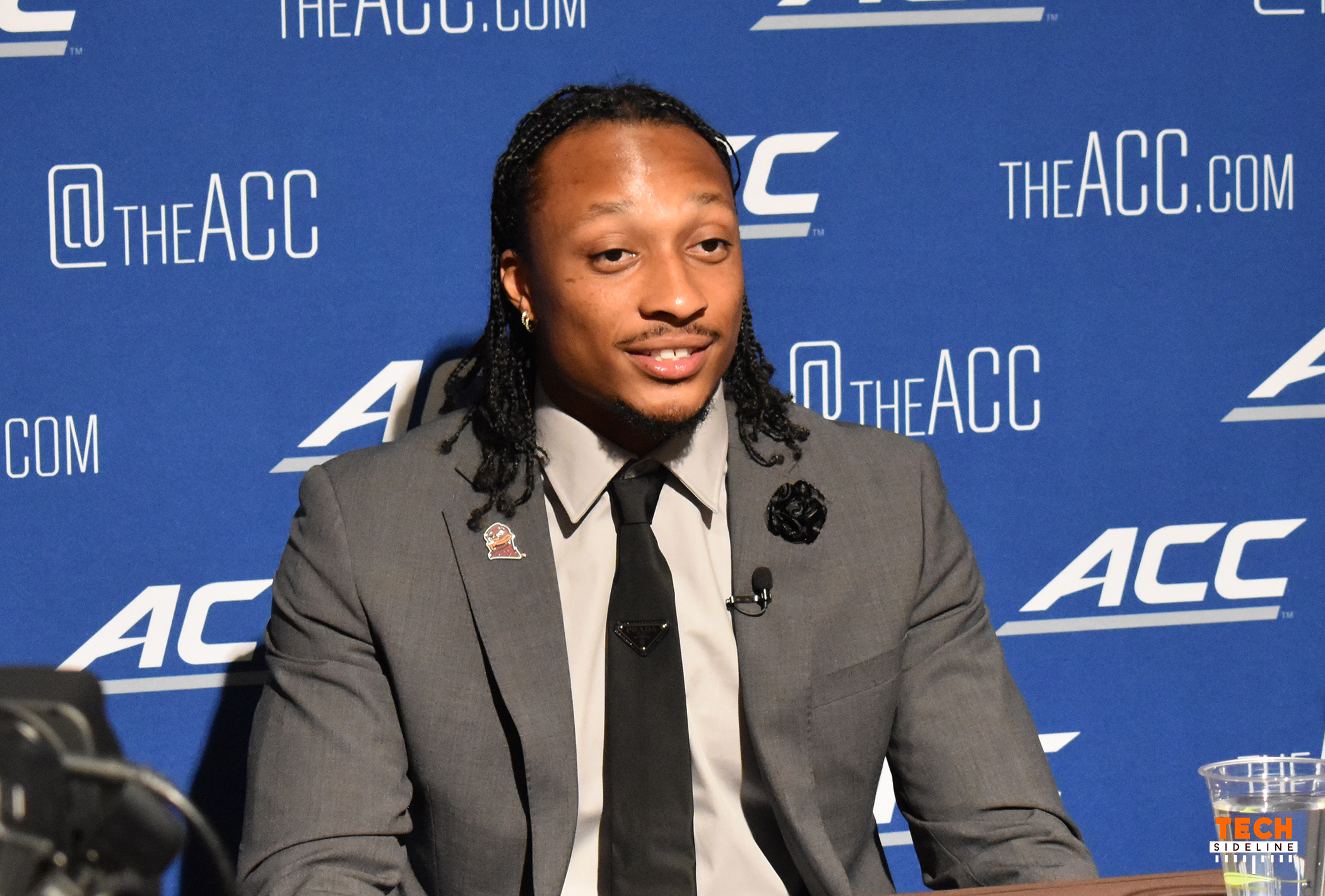
What are you and the coaches doing to make sure those in-state kids stay at Virginia Tech?
We’re just not getting away from that. I think that’s important. We’re not going to dip down south of Georgia much or west of Tennessee much. That footprint is that five-, six-hour radius of Blacksburg and everybody has their areas and they’re responsible for doing a good job. They’re being thorough in each area and we’re just not going to stray away from that.
When you started this process of recruiting back in the day, did you ever see the time coming where you would have helicopters in use to try to get the coaches in places like northern cities?
I didn’t see that coming. But that’s actually an important piece. And that’s something that we’re trying to establish on a consistent basis as well. I was just talking to Coach Pry about it today. For us to be efficient in what we want to do and be able to see as many kids as we want to see, we need to be able to have a consistent resource for us to go to school and see these kids. And that’s what we’re getting established for this year. We haven’t been able to have a helicopter everywhere that we’ve been but we’re going to continue to keep working on that. Because it’s nice to fly in Coach Pry and the helicopter to a school from an offensive standpoint is great, but from an efficiency standpoint it’s so valuable and critical for us and what we want to do.
How do you keep track of who’s where, who’s moving, how do you make sure that you see everything?
Before they even know what their schedule is, and this is how recruiting has evolved. It used to be the position coach kind of just does his schedule, and some guys still do. But for the most part, the recruiting staff and myself, we have basically a war room. Here’s all our top recruits, our priorities. Who’s seen this guy, who’s seen that guy, when are we seeing this guy, what we say to this guy? It’s a big puzzle essentially. And it’s our job to make sure that puzzle will make sense and it’s as efficient as possible.
When did these kids come on the radar? When can you offer them and all that?
We have a 2028 kid coming. It’s tough to project how well that kid’s gonna be, but everything’s moving faster in recruiting, everything gets moved up. And so it’s just the name of the game, we’re gonna have those kids on campus and we’re going to continue to recruit the young kids.
When you guys are evaluating, what are you looking for in high school players?
We’re looking for size. Each position has critical factors. So the defensive line is going to have different traits and critical factors than a defensive back. And what Coach Pry does really well with us in the recruiting staff is when we meet on a weekly basis and we’re watching film, he’s going over these critical factors in exactly what he needs because it’s just not a safety that we’re looking for. We’re looking for a field safety and a boundary safety. There’s differences at skill traits and critical factors what we’re looking for at those two positions, but he does a good job communicating with us what he’s looking for so then we can go ahead and recruit those guys.
Is roster management one of the hardest things when you try to figure out the numbers, like who’s going to be leaving, how many scholarships can you offer and all that sort of thing. Does that get challenging?
I think initially when COVID hit and then they established the COVID year, I think there were some wrinkles in roster management, but now we’re on the tail end of it so it’s become somewhat normal for us. And it used to be that you could only sign 25 guys a year, so that really kind of handcuffed you, but with the portal now, they took that away so it’s very manageable and we do a good job talking. We just met as a staff, we meet as a staff weekly go over our boards and we go over the depth charts. So the roster management, it’s not as bad as it used to be when they first established that COVID year.
Jalyn Ballein
What goes into your role as the director of on-campus recruiting? What’s your day-to-day like?
I handle everything with on campus visits, so anytime a kid steps foot on campus, I’m running their visit from start to finish, and I know Mike touched on that a little bit. So unofficial visits, official visits, junior days, gamedays, I kind of have a reign over all that and then obviously, I have my assistant, Camden Gresham, who helps me out a lot with that. And then all of our student workers, we have about 30 girls, student workers, under us who help us on gamedays and visits, so those also would not be able to run without them.
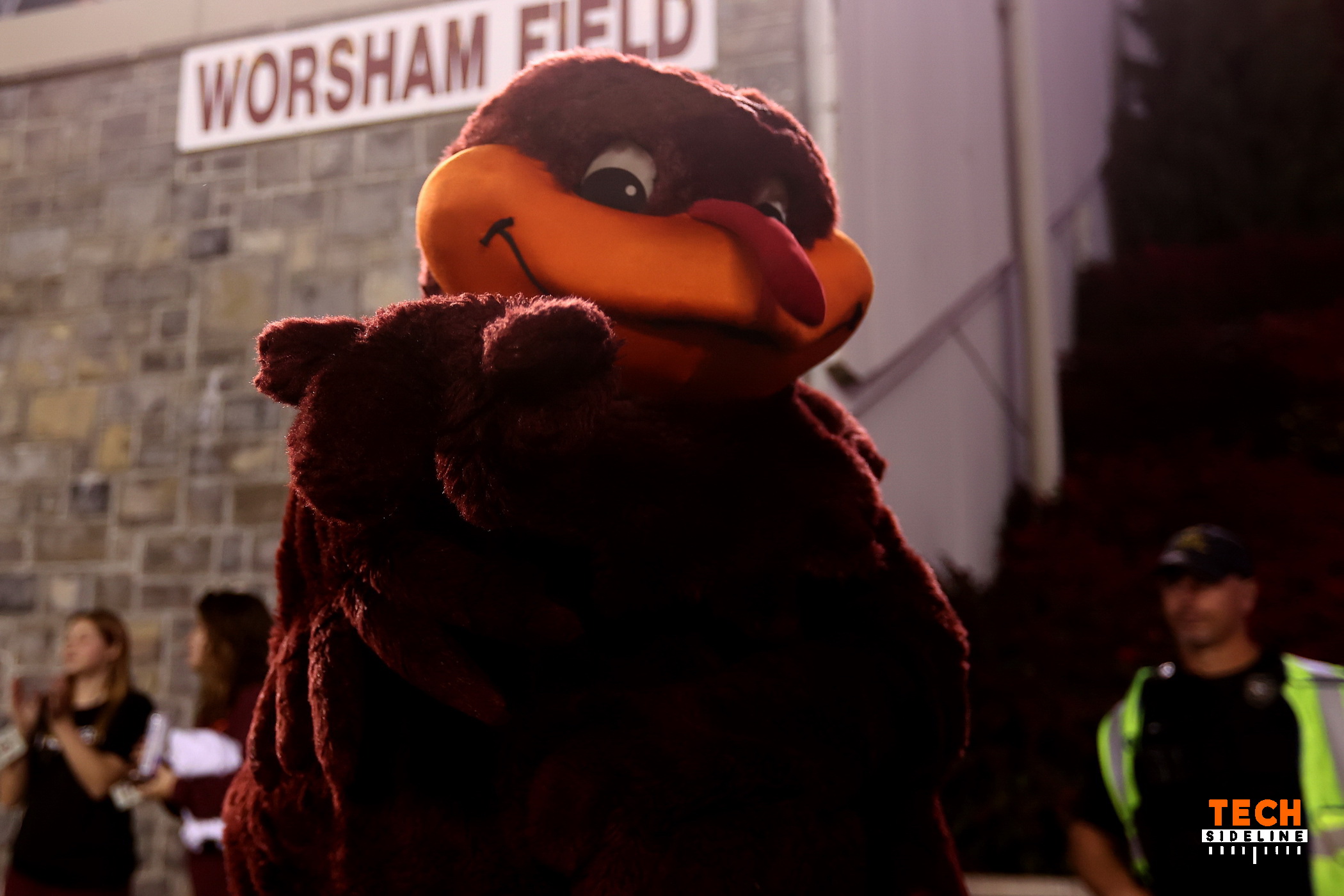
If you’ve got 80 or 100 kids coming in like Wake Forest, how in the world does that process start and how do you get through that weekend?
We’ve kind of streamlined it to where before I got here, it’s a big thing. You have to put in ticket requests for every kid that steps on campus, you have to fill out paperwork, you have to make an itinerary, you have to get your student workers on the same page. So we kind of have a weekly meeting on Thursdays before gamedays where we all do a walkthrough together. And then we kind of streamline the ticket thing where we make a website for recruits to get on and they’ll see their itinerary, they’ll see the shuttle bus schedule, they’ll see everything.
Our itinerary looks a little different from those, we try to make those a little prettier with the website. But it’s about communication. My job is a lot about communication. So it’s kind of getting everybody on the same page. Coaches, student workers, recruits everybody, you have to communicate with them and get everybody on the same page for it to run smoothly.
You and Mike mentioned the interns. What’s that selection process like and how does the group get put together?
We’ll have an interesting meeting at the beginning of each semester. So we’ll have one in August and then we’ll have one going into the next semester during the winter. And then we just kind of publicize that on Twitter. We’ll put out a graphic, people will sign up through a QR code. They’ll come in and we’ll kind of meet each of them one-on-one, see where their interests are and see if they align with our values of the program and then we’ll bring them in for a trial run. And it’s a lot of work. It’s a lot of hours and they work for free. You kind of have to be upfront with them on that end. And then from there, once they align with us, we just kind of start teaching them right off the bat. We’ve had some who have come in and we’ve had a junior day the next day, so you have to get acclimated pretty quick.
Does an intern possibly stay more than one semester?
Oh, yeah, we’ve had ones that have been there for three, four years. Like I mentioned before, Camden, my assistant up there, was an intern for four years leading up until she got a full-time job with us.
How do you guys determine where you’re going to take recruits? What you want to make sure you see? What are some of the spots that you have to check off in Blacksburg?
So we’ve kind of changed it a little bit throughout my time here and then my time at Wake Forest. I’ve kind of learned that it’s always a good thing to not just ask a position coach or Coach Pry, ‘Where do you want to take them?’ but also ask the recruit and their family. ‘What do you like to eat? What do you want to do? What do you want to get out of this visit?’ and kind of talk to them about it and then meet in the middle with the position coach and the recruit. A lot of spots we use in Blacksburg, we’ve come to McClain’s a lot for bowling. We’ve gone to 622, we’ve gone to the Farmhouse, it really just depends. I mean, Kyron Drones committed while he was at Kabuki because he wanted hibachi cooked in front of him.
You were at Wake Forest for a couple of years under Dave Clawson. What was that experience like and how did it help you get here? How happy were you to get back with family?
It’s a crazy story. I actually am from Blacksburg, so I always told myself I was never coming back to Blacksburg, I’ve done my time there. I went to Blacksburg High School. I’ve had enough. So I went to Georgia Southern and did my own thing. Six hours away from home, away from mom and dad. I was like, ‘That’s plenty, that’s good.’ And then I graduated from Georgia Southern and started working there for Coach [Chad] Lunsford as the director of on-campus. And then I got a job with Coach Clawson about six months later and I worked for him. It was a really good stepping stone for me just because they recruit at a smaller scale [and] level.
Obviously, because it’s a private school, it was a good stepping stone because when I got here, I was like, 120 kids on a gameday, I don’t know how it’d be able to do that. I remember Coach Pry coming in here, his first time, I think it was after Boston College last year, and he was like, ‘Jalyn had 100 recruits. She was ripping her hair out,’ and now I barely bat an eye if we have like 150 on the list. I’m like, ‘It’s okay. We’ll figure it out.’
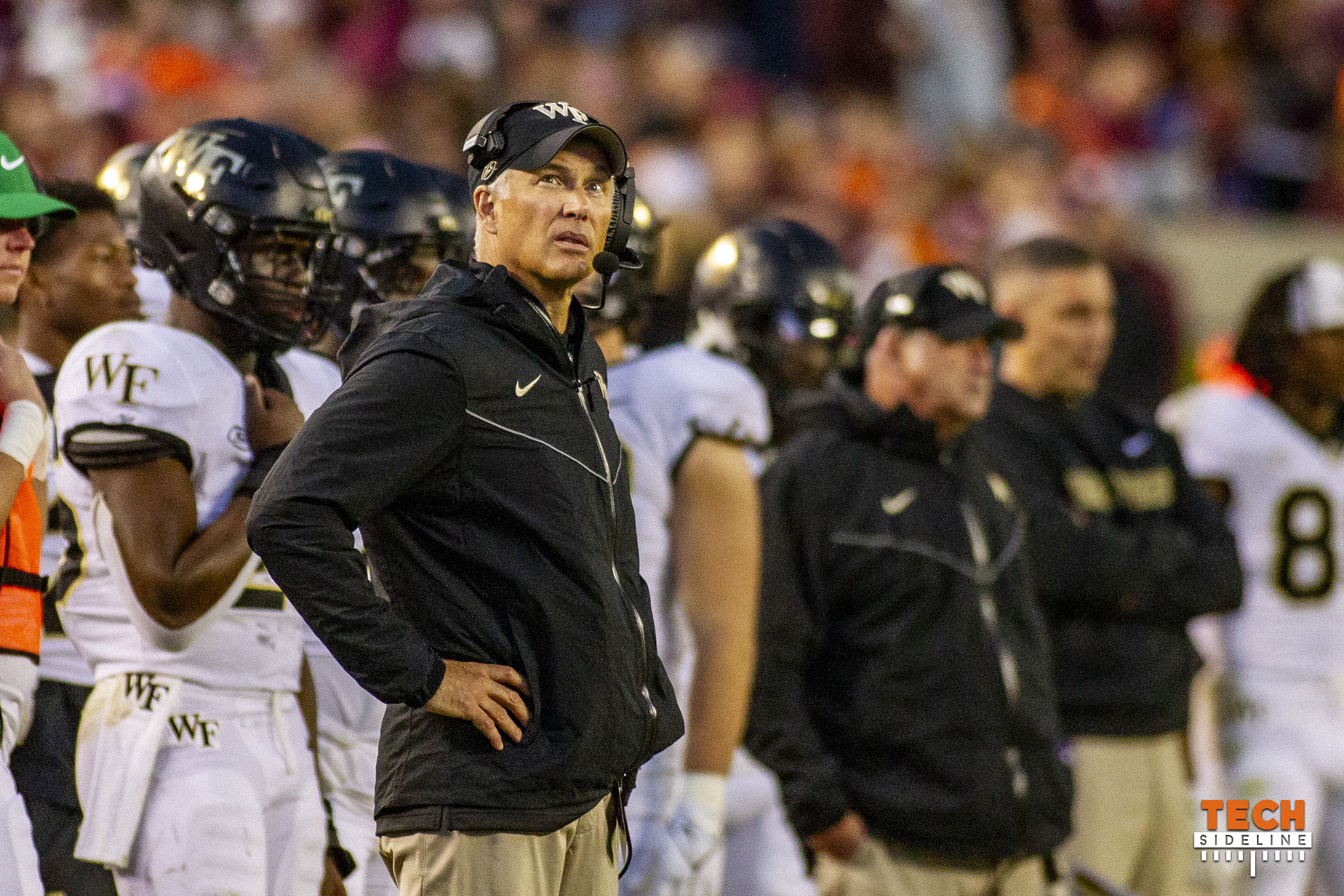
How does the whole unofficial visit work? What’s that whole process like?
Obviously, on an unofficial visit, we can’t really pay for their parking or pay for anything. So we have free parking at the parking garage off University City [Boulevard] and then we’ll have to shuttle buses, and I’ll give them a shuttle bus schedule of the times that they start and drop off and kind of give them a map of everything. So they’ll get shuttled over to us and we have interns stationed at every position to walk them from start to finish down to the indoor. Then we’ll do registration, we’ll give them their tickets. We’ll get information that we might not have on them.
So one big thing for us is we want the interns asking everything, like we almost borderline stalk them. When they come in, our interns will be like, ‘OK, what’s your mother’s name? What’s the status of your family? What’s your Twitter handle? What’s your mom’s Facebook like?’ We want to know everything. So they’ll get all their information, they’ll give them their tickets and then they’ll go through, get their measurements taken by our strength staff and then our guys up there, Alex Jones and Joe Joe Headen, they’ll help do measurements and then we’ll do pictures so we have kind of have a photo station set up so they can get family pictures for a game day that we can send to them afterwards.
Then they’ll come in, they’ll get dinner, usually it’s Mission BBQ. If it’s an earlier game, we’ll use professional catering and we’ll do kind of an omelet station. And then our tables are sorted by position. So they’ll find their position, go sit down, walk around, music playing and the coaches will all come out there to the indoor and go find guys at their position tables and sit there and talk to them a little bit before the game. Then we’ll kind of transition them down to the sideline an hour before kickoff so they can watch pre-game warmups and then our interns will help manage that and then get everybody into their stands and sit when there’s about 30 minutes left before kick.
Talk about your videos that you guys show the recruits.
Yeah, I mean, we run a lot of videos on visits, like the Enter Sandman videos are a big one that we like to show them when they come on campus. We have a signing day video we like to show them, we have a few ones. We have this one called ‘Why VT,’ which is really awesome. And it’s something we do on official visits. So when a kid comes in on their official visit, the Sunday before they leave, we kind of sit them down and then we have their parents sit down separately, and our chief of staff will ask them certain questions like, ‘Why did you choose VT? Why did you do this?’ So when they commit, we can kind of send that to them and then we can also put it in a video and play it for the next class. So there’s a thought process behind every video and we use a lot of them as recruiting tools.
The recruiting efforts of football and basketball keeps the post office alive. I mean, you guys are always sending something to these recruits.
Oh, yeah. We mass produce mail, like we’ll send mailers. We’ll do mailers for parents, too. So we’ll send parents mailers that specifically have facts about on campus kind of stuff that a mom would want to know, the dining, the academics, the admissions packets, we send it all and then we’ll do birthday cards too. So we have a couple of interns who are really, really good. They like to draw birthday cards and color birthday cards, and then we have some interns who try to do birthday cards and might not be great at them, but we’ll find a better job for them. So we’ll make sure it’s people’s strong suits. But yeah, we are always sending mail.
If certain kids are interested in a certain academic field, do you set up appointments with some of the professors or department?
Yep. So like I said earlier, communication is a huge part of my job. It’s not just communicating with recruits and in-house and football; it’s people on campus too. So if there’s a recruit and he’s interested in business, I have a professor that I always go to and I’m like, ‘Hey, we have a recruit here and he loves doing it. He loves being a part of it.’ He actually came to our signing day and we invited him there, but we have a lot of professors around campus who help us out and we’re very thankful for them. They’re awesome.
We make sure to do a little something for them. And then on our bigger official visits is when we have like a group of 13 or 14 come in. We specifically have a professor breakfast on Saturdays. So all the professors for every major of each kid that’s there will find one in each department and invite them and they’ll get to be in a breakfast setting, less of an academic setting where they can talk and the moms are gonna ask all their questions. So it’s really good.

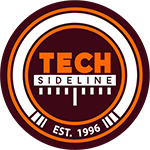


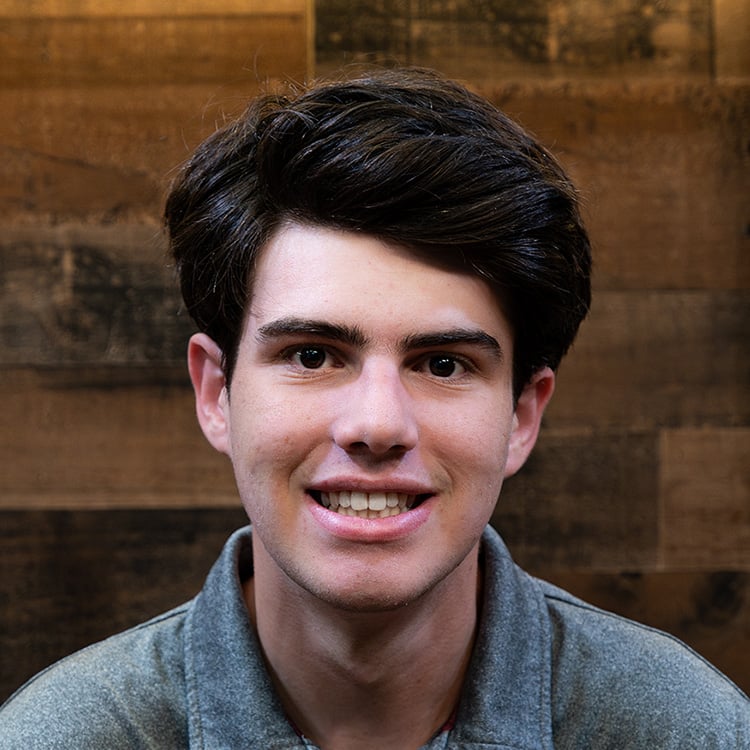
 Print
Print
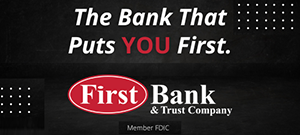






Appears to be a step up from CJF days and maybe even CFB days.
I had no idea about 80% of this process, it’s a military campaign.
Nice insights here!
Great article, one of the best TTL sessions I can remember. I learned a lot about the sausage making and how VT specifically has evolved.
This was very informative! Glad Pry had them on TTL this week.
Wow! I knew recruiting had grown tremendously, but I had no idea about all of the incredible effort, organization, execution, etc. Impressive!